1.
I pulled the heavy red book down from my dad’s bookshelf. Bryan A. Garner’s A Dictionary of Modern American Usage, its cover announced. “David Foster Wallace said it’s the only usage guide he ever consulted,” my dad said, a note of pride in his voice as if he and DFW had been old buddies. “I got it on sale at The Strand.”
“Huh,” I said and sat down, opening the tome on my lap to the word “eventuate,” the subject of a controversial debate with a coworker at my day job. The entry was short and snarky:
Eventuate is ‘an elaborate journalistic word that can usually be replaced by a simpler word to advantage.’ George P. Krapp, A Comprehensive Guide to Good English (1927).
Then came several examples of its misuse, explanations of what was wrong about it, and suggestions for words should have been used in it place (e.g., “happened,” “occurred,” “took place”). This comprehensive lesson perfectly resolved my confusion, since I had misconstrued the meaning of “eventuate” as something along the lines of “would eventually lead to.”
“This is terrific!” I told my dad. “Usually when I have a usage question at work, I just Google the question—like further vs. farther—and read the first few entries that pop up.”
 “See, that’s the trouble with the Internet,” he scoffed, single-handedly dismissing an entire global digital stratosphere. “The demise of authoritative references.”
“See, that’s the trouble with the Internet,” he scoffed, single-handedly dismissing an entire global digital stratosphere. “The demise of authoritative references.”
It was nice to have such a complete and well-researched reference on language usage right here at my fingertips. I immediately looked up several more entries, and started chuckling and reading them aloud. “Hey, listen to this, about ‘insofar as:’ ‘the dangers range from mere feebleness or wordiness, through pleonasm or confusion of grammar.’ Zing!”
“Keep the Garner’s, then,” my dad said with a smile. “I never use it.”
Tickled, I hugged my newest diction and style guide to my chest. What a great new writer’s tool I didn’t even know that I needed. This got me thinking about my other writers’ tools. What are the books that every writer should have handy? My other go-to writing books are not necessarily manuals of mechanics, but instead are resources that provide inspiration, moral support, models of good writing, and above all, comfort.
2.
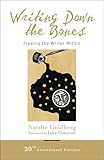 When I was 18, taking expository writing in my first semester of college, my professor, Kevin DiPirro, assigned Writing Down the Bones: Freeing the Writer Within by Natalie Goldberg. It was an optional text, so while he assigned us to read certain chapters concurrently with our other assignments, we never once discussed the content of the book in class. Instead, we wrote expository essays trying to frame rhetorical situations, analyze evidence, and make well-researched arguments. But my teacher-student relationship with Natalie Goldberg started that year, and for that, I’ll always be grateful to Kevin.
When I was 18, taking expository writing in my first semester of college, my professor, Kevin DiPirro, assigned Writing Down the Bones: Freeing the Writer Within by Natalie Goldberg. It was an optional text, so while he assigned us to read certain chapters concurrently with our other assignments, we never once discussed the content of the book in class. Instead, we wrote expository essays trying to frame rhetorical situations, analyze evidence, and make well-researched arguments. But my teacher-student relationship with Natalie Goldberg started that year, and for that, I’ll always be grateful to Kevin.
One afternoon, in a darkened corner of the library, I cracked open Writing Down the Bones. What’s this all about? I wondered. Natalie’s words spoke aloud to me, like a calm teacher, echoing in my mind:
Writing As Practice
This is the practice school of writing… You practice whether you want to or not. You don’t wait around for inspiration and a deep desire to run. It’ll never happen, especially if you are out of shape and have been avoiding it. But if you run regularly, you train your mind to cut through or ignore your resistance… Sit down with the least expectation of yourself; say, ‘I am free to write the worst junk in the world.’ You have to give yourself the space to write a lot without a destination… My rule is to finish a notebook a month. Simply fill it. That is the practice.
Then, at the end of the chapter:
Think of writing practice as loving arms you come to illogically and incoherently. It’s our wild forest where we gather energy before going to prune our garden, with our fine books and novels. It’s a continual practice.
Sit down right now. Give me this moment. Write whatever’s running through you. You might start with this moment and end up writing about the gardenia you wore at your wedding seven years ago. That’s fine. Don’t try to control it. Stay present with whatever comes up, and keep your hand moving.
I wrote for about five or 10 minutes in my notebook, and wrote what was running through me. My experiences and deepest longings leapt straight from my heart and out onto the page through my hand, and the act of writing became so simple and direct that it was as if my brain was just a spectator, anxious mutterings quieted at last. By the time I finished, I was quietly sobbing in that dark corner of the library, in the sheltered desk carrel that shielded me from the rest of the campus studying on that day in late September of 2002. Something was unleashed that day, and I was so moved by that feeling of being granted permission to write any way I wanted that I dated that page in Writing Down the Bones. Something big happened here today.
I kept that book with me, when things were great and when things were shitty, when I felt despair or years of writer’s block or crippling fear. It’s okay, just write for 10 minutes. Natalie has given me permission to write the worst junk imaginable, because it is the practice that matters. Now, more than a decade later, in my writing sessions, I can finally distinguish the feeling of the juice, the flow of when I’m finally cooking with gas or sparks are flying—pick your metaphor—and I can channel that energy into whatever feels important to work on. But first I have to warm up. Even if I’m writing every day consistently, I still have to shake off the rust and the stiff joints and re-enter the river of writing, the thrall of my own subconscious voice, in order to be receptive enough to conduct electricity when lightning strikes. When I’m stuck, I open up Writing Down the Bones and read:
Be Specific
Be specific. Don’t say ‘fruit.’ Tell what kind of fruit—‘It is a pomegranate.’ Give things the dignity of their names.Don’t Marry the Fly
Watch when you listen to a piece of writing. There might be spaces where your mind wanders.A New Moment
Katagiri Roshi often used to say: ‘Take one step off a hundred-foot pole.’
3.



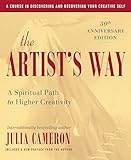
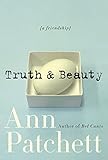
 One paradox of my writer’s toolbox of books is that I don’t often write at my writing desk—preferring instead the anonymous yet community feel of a table at my local coffee shop. But I tend to carry that dog-eared and war-torn copy of Writing Down the Bones with me wherever I go. Sometimes I switch it out for my almost-as-demolished copy of Bird by Bird by Anne Lamott, which is funnier and a bit more genre-specific about writing fiction. Over the years, I have trafficked through copies of The Artist’s Way by Julia Cameron, On Writing by Stephen King, Zen and the Art of Writing by Ray Bradbury, Still Writing by Dani Shapiro, and Truth and Beauty by Ann Patchett—which technically isn’t a craft book, but I lump it in, because it’s a memoir of being a young unpublished writer and of “making it,” documenting one particularly deep writing friendship. You could say that I’m a craft book junkie. You could say that.
One paradox of my writer’s toolbox of books is that I don’t often write at my writing desk—preferring instead the anonymous yet community feel of a table at my local coffee shop. But I tend to carry that dog-eared and war-torn copy of Writing Down the Bones with me wherever I go. Sometimes I switch it out for my almost-as-demolished copy of Bird by Bird by Anne Lamott, which is funnier and a bit more genre-specific about writing fiction. Over the years, I have trafficked through copies of The Artist’s Way by Julia Cameron, On Writing by Stephen King, Zen and the Art of Writing by Ray Bradbury, Still Writing by Dani Shapiro, and Truth and Beauty by Ann Patchett—which technically isn’t a craft book, but I lump it in, because it’s a memoir of being a young unpublished writer and of “making it,” documenting one particularly deep writing friendship. You could say that I’m a craft book junkie. You could say that.
I also keep books around that remind me of what I love about good writing. I have books that I reread just for the feeling of basking in good writing, like snuggling under a warm blanket or quenching my thirst with a perfectly cold glass of water. Novels like The Mysteries of Pittsburgh, Motherless Brooklyn, A Visit from the Goon Squad, Fight Club, and the Unbearable Lightness of Being are some of these books, and in college, along with the books I was reading for classes, I kept a “greatest hits” shelf of books that made me feel better just by dint of their being nearby.
Yet I don’t own a dictionary. My fiancé, a recreational poet, has a rhyming dictionary, which it has never occurred to me to purchase. I use an online thesaurus regularly at work, but in this digital age, I would never buy a hardcover copy.
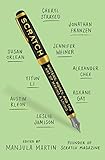 Recently, I picked up a copy of Scratch: Writers, Money, and the Art of Making a Living, which I think of as a kind of lifestyle companion for writers delusional enough to think they might someday might make real money from this. It has anecdotal guidance and moral support for writers and those pursuing the writing life, a type of useful and practical advice that reminds me of my regular bimonthly Poets & Writers arrival. My subscription always seems on the verge of lapsing, but I read the magazine cover to cover whenever it arrives. I read the Residencies and Conferences and Grants and Awards sections with a pen in my hand.
Recently, I picked up a copy of Scratch: Writers, Money, and the Art of Making a Living, which I think of as a kind of lifestyle companion for writers delusional enough to think they might someday might make real money from this. It has anecdotal guidance and moral support for writers and those pursuing the writing life, a type of useful and practical advice that reminds me of my regular bimonthly Poets & Writers arrival. My subscription always seems on the verge of lapsing, but I read the magazine cover to cover whenever it arrives. I read the Residencies and Conferences and Grants and Awards sections with a pen in my hand.
4.
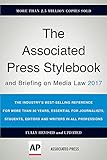

 I was giddy but apprehensive about my gift of Garner’s Modern Usage. My first thought was, I should bring this to work! In my office, my windowsill-turned-bookshelf has on it a weathered copy of William Zinsser’s On Writing Well, an ancient copy of William Strunk Jr. and E.B. White’s Elements of Style, an untouched copy of the AP Style Guide, and Bill Bryson’s Dictionary for Writers and Editors. The latter is interesting but not comprehensive, so I eventually stopped looking up entries that didn’t exist. But it has a beautiful cover.
I was giddy but apprehensive about my gift of Garner’s Modern Usage. My first thought was, I should bring this to work! In my office, my windowsill-turned-bookshelf has on it a weathered copy of William Zinsser’s On Writing Well, an ancient copy of William Strunk Jr. and E.B. White’s Elements of Style, an untouched copy of the AP Style Guide, and Bill Bryson’s Dictionary for Writers and Editors. The latter is interesting but not comprehensive, so I eventually stopped looking up entries that didn’t exist. But it has a beautiful cover.
My second thought was, Screw work, I want to keep this at home and use it for my own writing at my writing desk! My immediate third thought was, I have to clean my writing desk! Lacking bookshelf space, I started stacking books I’ve just read or want to read on one corner of the small wooden desk I shellacked with rejection slips years ago, back when literary magazines sent paper rejections. I have a tiny ceramic lamp that sits on the other corner of the desk, and without a home office space larger than the footprint of this desk, I’ve collected a variety of other things on its surface—papers, folders, envelopes, DVDs, an unpaid doctor’s bill. My checkbook, more books I’m planning to read, recent drafts of novel revisions, with all manner of handbags and tote bags hanging off the handles of my desk chair like a flea market handbag stall.
Could a single modern usage book revolutionize my home writing space and daily writing practice?
I’ve always thought of myself as a writing nomad. Natalie says,
Write Anyplace. Okay. Your kids are climbing into the cereal box. You have $1.25 left in your checking account. Your husband can’t find his shoes, your car won’t start, you know you have lived a life of unfulfilled dreams….Take out another notebook, pick up another pen, and just write, just write, just write. In the middle of the world, make one positive step. In the center of chaos, make one definitive act. Just write.
I write her words, copy them into my notebook, and in that moment, I am reborn. I like having authorities, teachers, mentors on the page. Natalie has taught me a great deal in the 15 years that I’ve been reading and rereading her book.
Maybe Bryan Garner can become my newest teacher on the page, in his witty biting asides about “eventuate” and “insofar as” and many other linguistic predicaments that I have yet to identify. Of course, one great appeal of having the voice of Garner giving me authoritative advice on proper usage is that hovering over his shoulder is the friendly specter of David Foster Wallace, and next to him, my dad nodding along and laughing at my enthusiasm. When he gifted me the book, he said, “This is a great reference for a writer.” It’s in those tiny moments that I feel his slight seal of approval, or at least simple affirmation, of that life that I’ve chosen for myself. He sees me as a writer. Thanks, dad.









